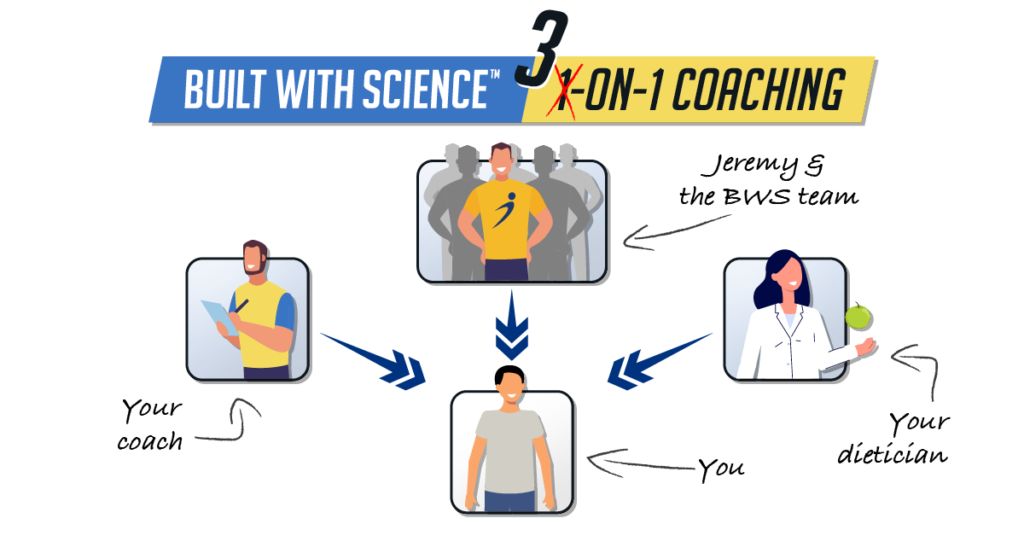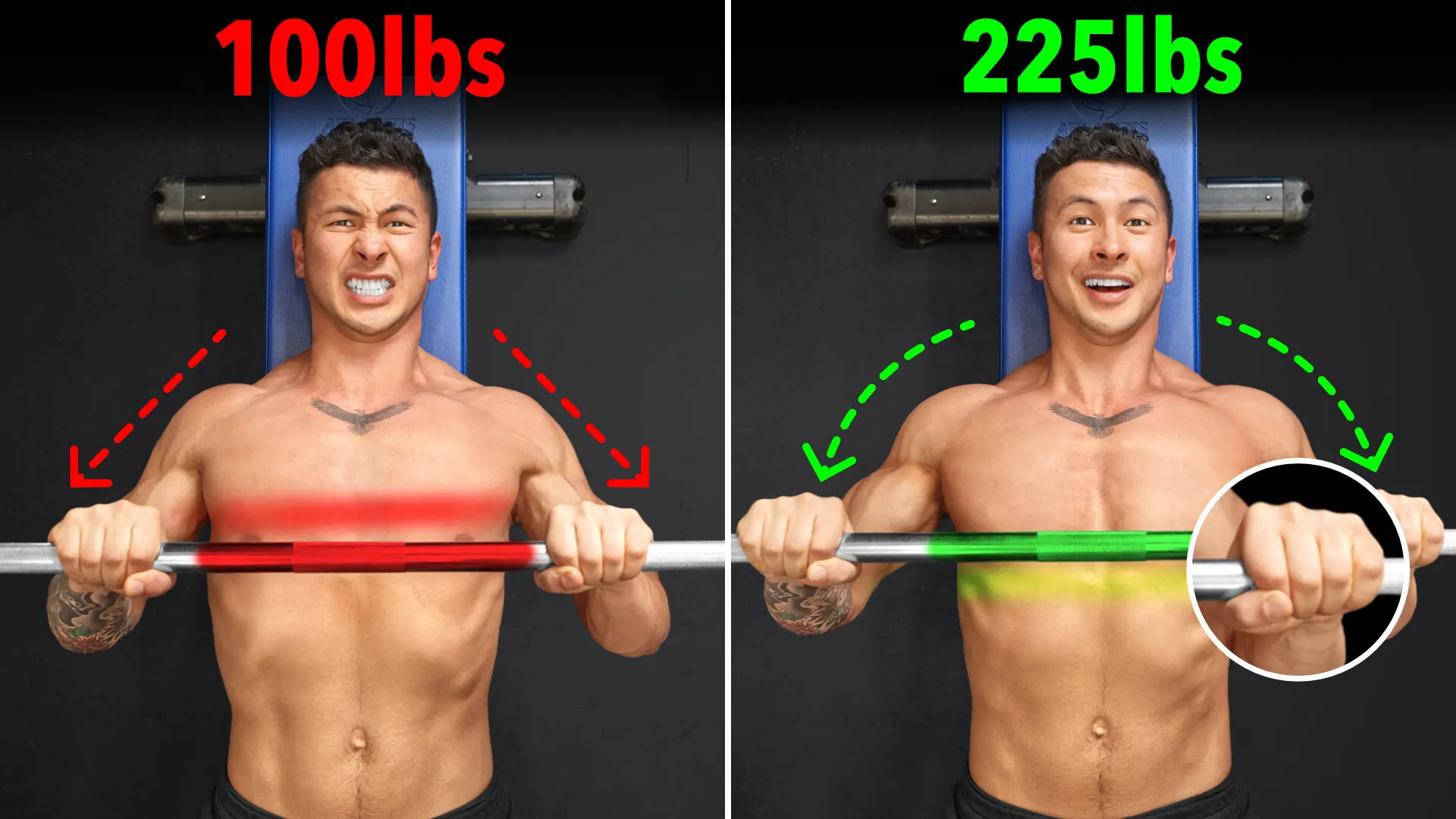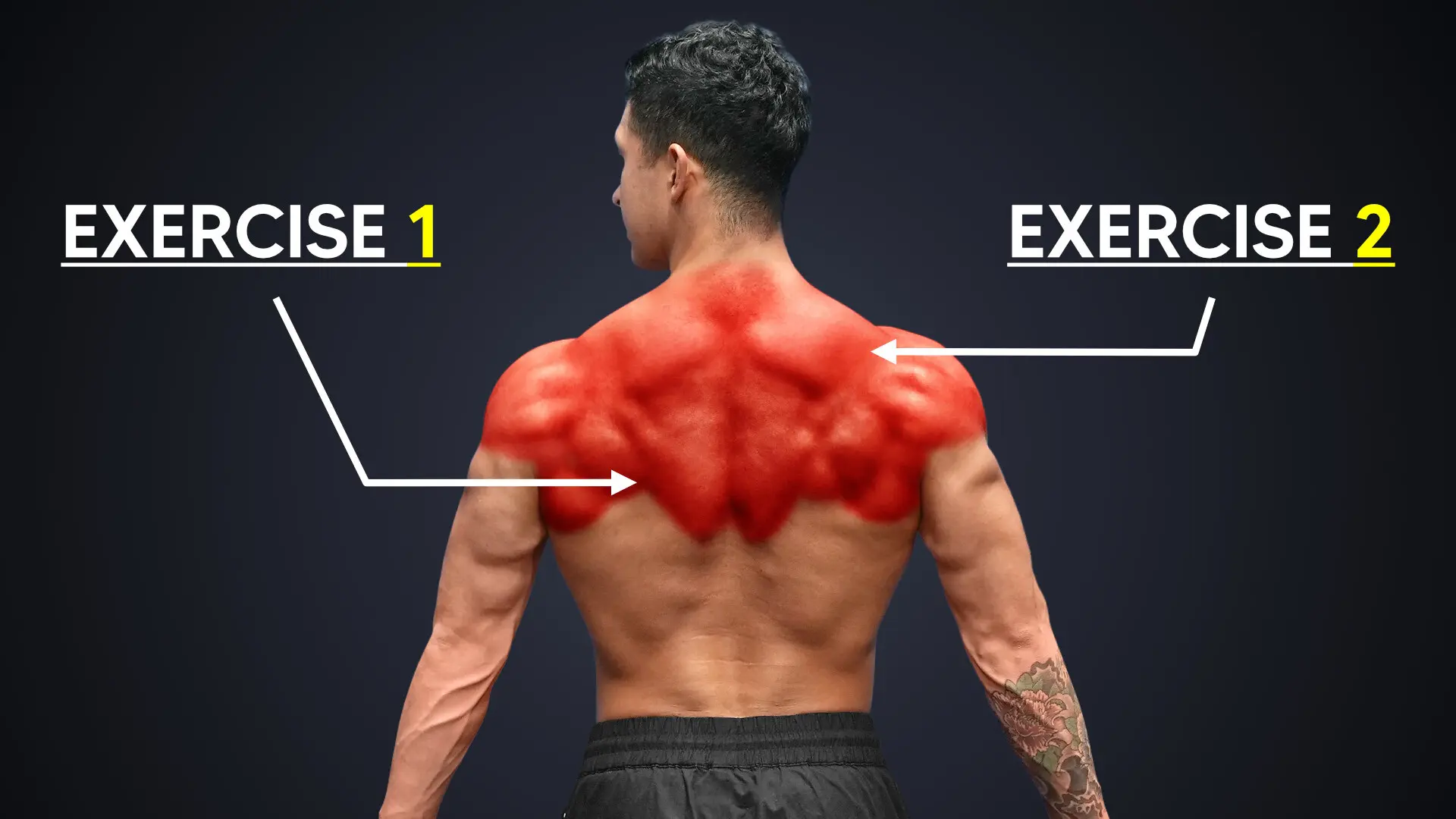
The FASTEST Way To Grow Big Biceps (In 8 Weeks)
Haven't been seeing results from your biceps routine? This article is a must-read. Here, I cover the exact training plan that'll get you big biceps - FAST.
Building big (or bigger) biceps is no easy feat. It’s a much slower process than most people perceive it to be. But if you’re serious about maximizing and prioritizing your biceps growth? Then there are a few strategies we can employ that research has shown will be able to significantly speed up its growth.
In this article, I’ll go through what these strategies are. And how to employ them so that in the next 8 weeks of your training so you build your biceps as fast as possible. I guarantee that even if:
- You’re a “non-responder” OR
- You just haven’t been seeing much results with your current biceps regimen
...That implementing this plan will result in a ton of new growth for your biceps. Or, in fact, any muscle that you apply these strategies to!
By the way, this well-thought-out and science-backed training plan is just an example of what you can expect from our BWS programs. I've designed each to be an all-in-one, complete process that'll get you to your dream physique ASAP. If you're interested:
Click the button below to take my analysis quiz to discover the best program for you:
↓
Adjust Volume
The first and most important thing we’ll want to do to build big biceps is start adjusting our weekly biceps volume. More specifically, we will want to increase our weekly biceps volume to stimulate more growth. Why? Well, because the past work of researchers Brad Schoenfeld and James Krieger shows that there’s a dose-response relationship between weekly volume and muscle growth. Note that increasing your weekly biceps volume is especially effective in the event that you’ve reached a plateau. That is, your biceps just aren’t responding to your current biceps volume.
However, this doesn’t mean that you should simply do as much volume as possible. You shouldn't absolutely annihilate your biceps every single workout. That can do more harm than good. Instead, we need to take a strategic approach to this based on the research.
How Many Sets Of Biceps Work Should You Do Weekly?
First off, we need to determine how much to increase your weekly biceps volume to. And it seems that we may be able to get to as high as 30 sets per week while still seeing a benefit in growth.
For instance, one very well-controlled 2015 paper compared the effect of performing either 6, 18, or 30 weekly biceps sets on 48 untrained men over the course of six months. As shown in the following graph, there was a clear dose-response effect in terms of volume and the resulting biceps growth. The 30 weekly set group experienced growth that was on average 3-4 times what’s typically seen in the research.
This study design was then repeated on trained men by Brad Schoenfeld and colleagues in 2019. Their findings? Similar results in biceps growth. And in fact, in the highest volume condition, there were no non-responders. This is a stark contrast to over half of the subjects being non-responders in the lowest volume condition.
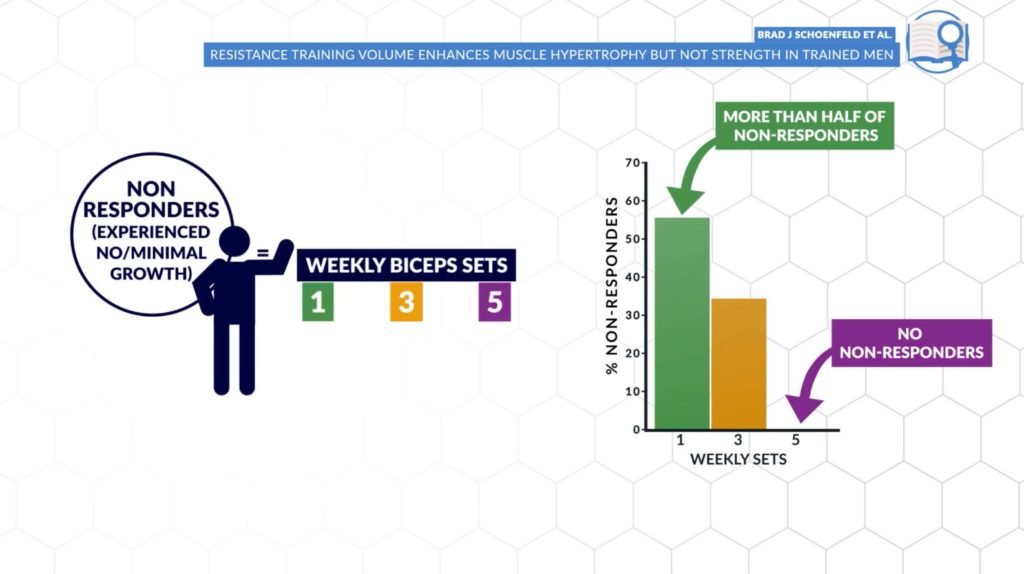
Be Aware Of The Per-Session Volume Limit
Now, this doesn’t mean you should throw in 30 sets of biceps into a workout. And only do that once a week. Because we also need to be aware of another important finding based on the work of researcher James Krieger. Which is that there seems to be a per-session volume limit of about 8-10 sets per muscle. Meaning that within each workout, you don’t want to perform more than about 8-10 hard sets per muscle. Going beyond that, anything you do tends to just become “junk volume”. And is, therefore, less effective for hypertrophy.
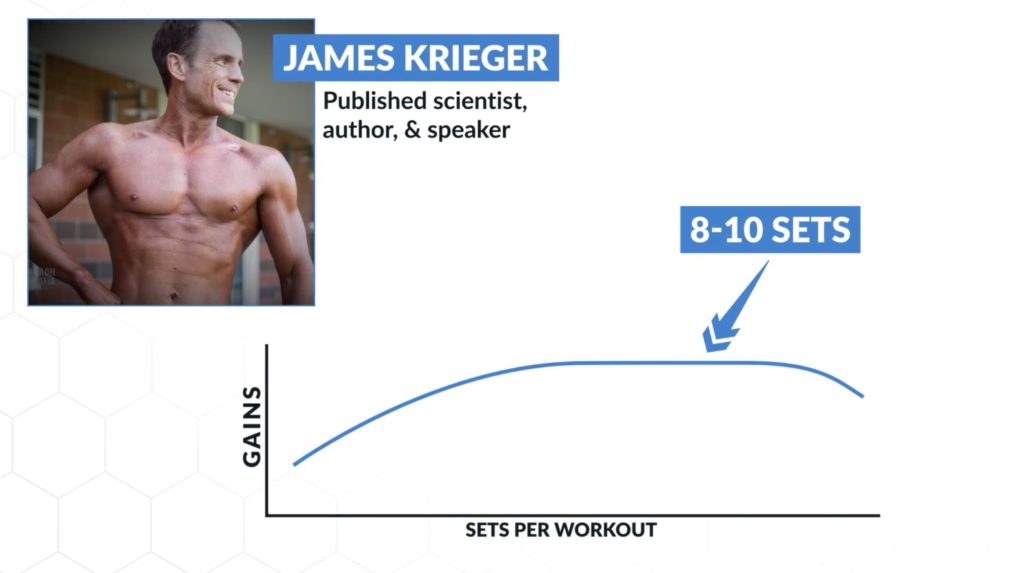
So, knowing that, we’ll want to split up our weekly biceps volume into 2-3 workouts per week to stay within that per-session limit. What I’d personally recommend is using something like the:
- Upper/lower split (upper/lower/rest/upper/lower/upper) OR
- Push pull legs split
...And split up your weekly biceps volume accordingly.
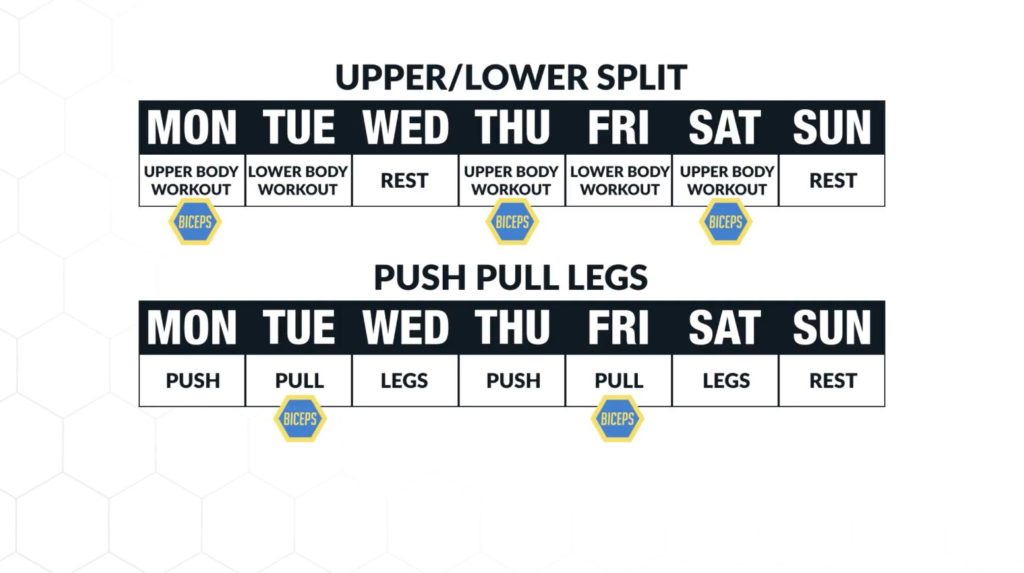
Once you have that set, slowly increase your weekly volume throughout the weeks. You can do so with the methods popularized by Dr. Mike Israetel. So for instance:
- Week 1 - Start with about 10 sets for your biceps weekly
- From weeks 1 to 8 - Increase this slowly by adding about 2-4 weekly sets every week or so up to about 20-30 weekly sets. Make sure you’re still recovering and progressing well which will be highly individual.
- End of the 8 weeks - You should be doing a considerable amount of weekly biceps volume and feeling quite fatigued. This is where you can take a deload week to recover and finish off the cycle.
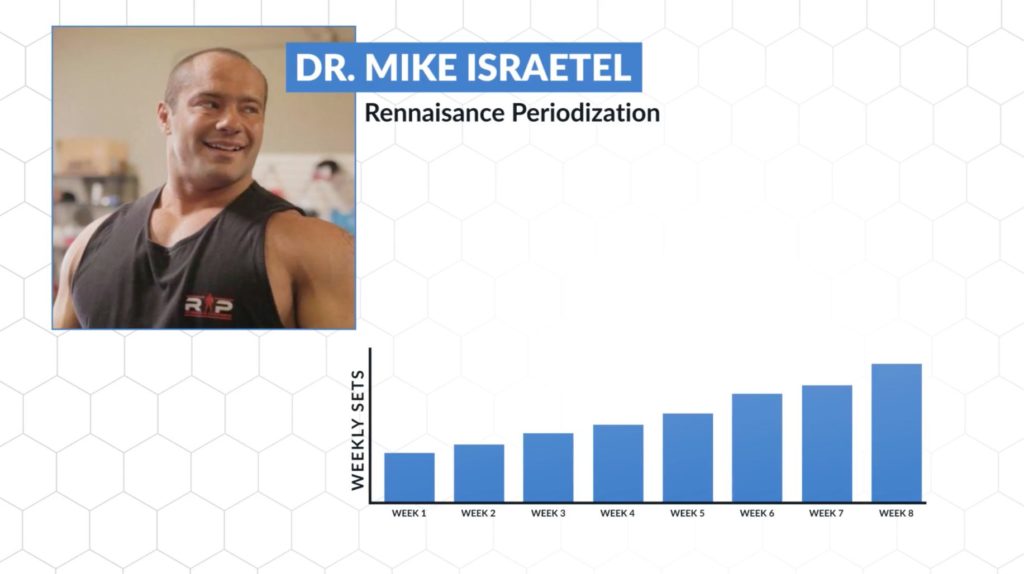
Do also keep in mind that the pulling work you do for your back (like pull-ups and rows) should also be counted towards your weekly biceps sets. Those heavily involve the biceps as well.
Manage Recovery
Next, you want to manage your recovery. In fact, you'd want to bias it to favor your biceps growth throughout this period. Just like our biceps, all of the other muscle groups we train require energy, effort, and nutrients to recover and grow. So if our main goal is to increase the size of our biceps? It’s likely a good idea to reduce the volume we devote to our other muscle groups. Doing so enables our body to favor our performance, recovery, and growth towards our biceps that we’re going to be training with quite a bit of volume.
Reduce The Volume Dedicated To Other Muscle Groups
In fact, we can reduce the volume we dedicate to our other muscle groups. The end volume we do should be just enough to maintain their size or stimulate a little bit of growth in them throughout the weeks.
But exactly how many sets should we do, though? Multiple papers have shown that cutting volume down to about 9 weekly sets seems to be enough to maintain or in some instances even grow a muscle. And is therefore a good recommendation to stick to. So for muscle groups like your legs, chest, back, and shoulders, allocating around just 9 or so weekly sets to each of them would be a good idea if you really wanted to favor the recovery and growth of your biceps.
And for example, this could look something like the following weekly routine for the chest. You’d simply do 3 exercises a week with 3 working sets for each exercise.
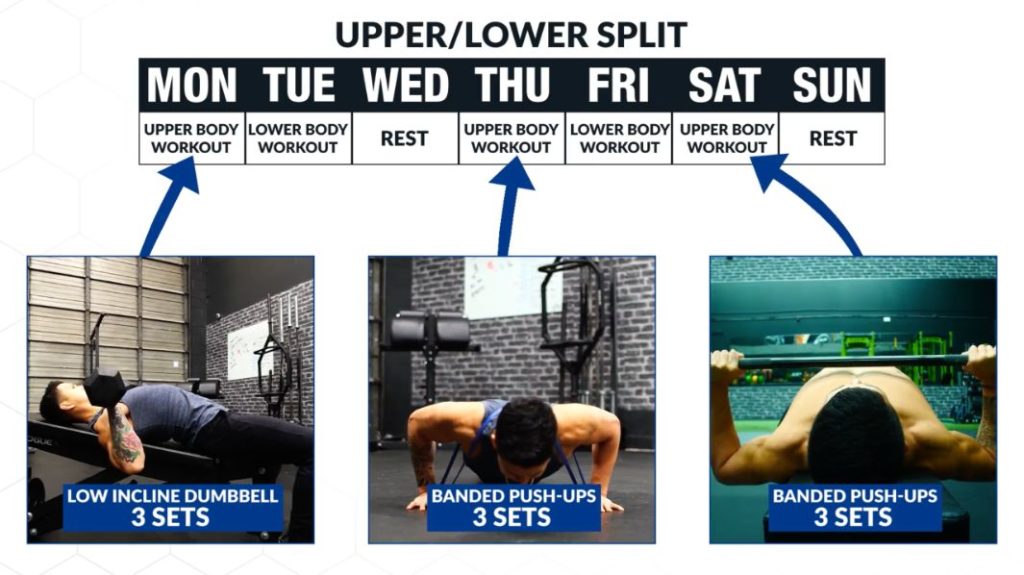
Many people in the gym train without making time for recovery - and this slows down their progress in the gym MASSIVELY. Steer clear of this mistake with our 3-on-1 coaching program. My team of BWS experts - along with myself - are going to personally coach you so you get the most out of your training. To find out more:
Click the button below to find out more about the 3-on-1 coaching program:
↓
Exercise Variation
Next, we want to ensure that the weekly volume we do has the right variety of exercises to build your biceps. We want to do this so that it helps:
- Ensure that we are targeting both the short and long head of the biceps adequately
- Train the biceps through different strength curves to maximally stimulate all of the various regions and fibres of the biceps
- Better prevent us from overuse injuries and the wear and tear that would accumulate very quickly if we packed a ton of volume into just a couple of repetitive movements.
To simplify this, here are 5 biceps exercises that do just that. And provide a good variety of stimulus on the biceps for the reasons I’ve noted down.
- Incline dumbbell curl (emphasizes long head and challenges the peak contraction of the biceps the most)
- Dumbbell preacher curls (emphasizes short head and challenges the stretched position of the biceps the most)
- Barbell curl (for heavier loads and challenges the mid-range of the biceps the most)
- Cable curls (provides constant tension to biceps)
- Standing dumbbell curl (emphasizes supination function of biceps)
Simply distribute 4 or 5 of these movements and/or similar variations of them into your weekly biceps workouts as needed. And then as previously explained, gradually increase the sets you devote to each of these exercises throughout the weeks to accumulate more and more weekly biceps volume.
Exercise Order
Next, we want to manipulate the order of our workouts to again favor the growth of our biceps. Multiple papers have shown that lifters get better strength gains in exercises that are done early in a session, with a trend for better growth in those exercises as well. Which makes sense.
After a back workout, for example, by the time I’m done with those back movements I can barely shake my post-workout protein. Let alone have enough energy to then hammer out some biceps work! So, during whatever workouts that you’re throwing your biceps exercises into, move them to the beginning of the workout when you’re fresh in order to further prioritize them.
Nutrition
Lastly, is nutrition. Ideally, if you want to maximize your recovery and growth throughout these 8 weeks, you’ll want to be eating at a slight calorie surplus. It is possible to grow muscle while in a calorie deficit. But it’s much more difficult to do - and will be slower since protein synthesis reduces significantly whenever we’re in a deficit.
So unless you’d still really like to prioritize fat loss throughout these 8 weeks, stick with a small calorie surplus. Or, at least enough calories such that you’re recovering and progressing well throughout the weeks. And of course, even more importantly is we want to ensure that we’re intaking enough protein throughout this period by having at least around 0.8-1g of protein per lb of our bodyweight. Otherwise, we’ll be sabotaging much of the effort that’s going into our workouts.
Build Big Biceps Action Plan
And that’s basically all there is to it. Look forward to a bigger, more impressive biceps peak! For your convenience, I’ve combined all of this information into a free 8-week biceps workout routine template that you can download and incorporate into your routine right away. It’ll breakdown exactly:
- How to set up your workout split
- What biceps exercises to use AND
- How to progress them throughout the 8 weeks with more volume
To grab a copy of this:
Click the button below to download the big biceps workout PDF:
But also keep in mind that your nutrition throughout this period and during your training, in general, will always be the most important factor in building muscle and losing fat. That’s why within my science-based programs, in addition to the step by step training plans you’ll receive, I’ve also created a nutrition tracker that’ll do all the guesswork for you and show you what to eat, how much to eat, and how to adjust this over time to avoid reaching plateaus. To gain access today:
Click the button below to take my analysis quiz to discover the best program for you:
↓


